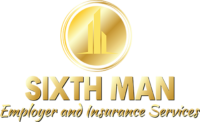Defining PEO
The answer to this question is actually found in the name. A Professional Employer Organization (PEO) is a company that is so good at being an employer, they refer to themselves as Professionals.
To understand what it means to be a “Professional Employer”, in practical terms, one must understand what challenges are presented to employers.
Business vs. Employment
So…let’s talk about what it means to be an employer.
Any business can become an employer. It just takes hiring one employee. In fact, for most businesses, becoming an employer is a sign of positive growth.
That said, most organizations are driven by a purpose that is larger than job creation. Restaurants aim to please patrons with the food they serve. Contractors find their worth in building the world around us. It is in pursuit of this larger purpose that businesses are often pushed into becoming an employer.
While it can be a significant milestone for a company, hiring employees is where the trouble can begin for a large majority of small businesses.
We just finished establishing that business owners are usually experts in their chosen craft. Employment, however, has evolved into its own craft that demands a certain amount of expertise in order to find success.
In short, a business must be able to excel in their chosen craft AND find success as an employer in order to achieve sustainable growth.
The 2 Types of Employment Challenges
In this section, we will cover the 2 types of challenges that businesses encounter when dealing with employees and employment.
To add more context, we will focus on the employment landscape in our home State of California due to the complexities that exist in the state.
#1 Legal & Compliance: A business’s employment journey begins, not when the first employee is hired, rather, when you send out your first job posting. At this point, a business is accepting a certain amount of risk that comes with screening candidates, interviewing and even offering a position. An employment-related lawsuit can stem from any step in the hiring process. You are reading correctly. A business can be held liable for employment claims before they ever hire their first employee.
Now, let’s talk about after a business hires just one employee. In California, once a business hires their first employee they become subject to any number of laws with which the business must maintain compliance. Workers’ Compensation laws, Retirement Program mandates and Paid Sick Leave Laws are just a few that can come into play when a business employs just one individual.
As an employer grows and continues to hire employees they become subject to more and more laws. For example, up until 2022, a business with 26 or more employees was subject to a higher minimum wage requirement than those with 25 or fewer employees until 2022.
The point is this…it is increasingly difficult (and nearly impossible) for California businesses to ensure that they are in compliance with all of the employment laws that exist without the help of an expert in this field.
#2 The Human Aspect: Let us not forget that we are dealing with humans.
Since we have not yet reached the age wherein society is run entirely by machines, employers need to be able to cater to the personal needs of the people in their organization.
Offering a strong benefits package is a great place to start when it comes to maintaining a thriving workforce. This is especially true for smaller companies that may have a harder time accessing competitive benefits packages compared to larger organizations.
Aside from this, the ability to keep up with PTO demands, paid sick leave administration and tracking and even the needs of telecommuting employees should not be overlooked. The modern workforce expects more flexibility from employers that at any other time in history.
An employer’s ability, or lack thereof, to meet flexibility demands for employees can play a significant factor in attracting and retaining some of the top talent in the industry.
Humans can be demanding, unpredictable and downright tough to deal with sometimes. However, until your organization finds a way to run without humans, you are better off making sure that the ones you employ are having their needs met.
So…what actually is a PEO?
Now that we’ve set the stage to really be able to discuss how a PEO can help your organization (or if you just skipped ahead to the good stuff), we will answer the question.
The way I like to explain a PEO is as follows:
A PEO is a company that uses its resources, expertise and volume to procure employment-related services at extremely low costs and pass the savings on to its clients by way of competitive rate structures while providing client companies with access to resources that are usually reserved for larger organizations.
The employment-related services offered by a PEO to its clients usually include Workers’ Compensation Insurance, Human Resources Consulting, Worker Safety/Risk Management, Benefits Plans and Plan Administration and Full-Service Payroll Processing.
The PEO model insists that clients utilize the entire PEO bundle as opposed to an a la carte style service provider. A PEO bundles services with the intention of maintaining financial flexibility and adding maximum value to client companies. In the ideal situation, the PEO makes money, the client company saves money and both companies benefit from a strong partnership.
Naturally, answering the question of “What is a PEO?” will only bring about more questions about the nature of the relationship and the inner workings of a PEO partnership.
Feel free to reach out and get answers to any specific questions you may have about a PEO.
